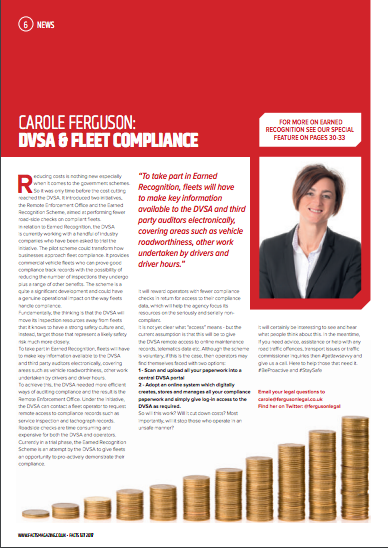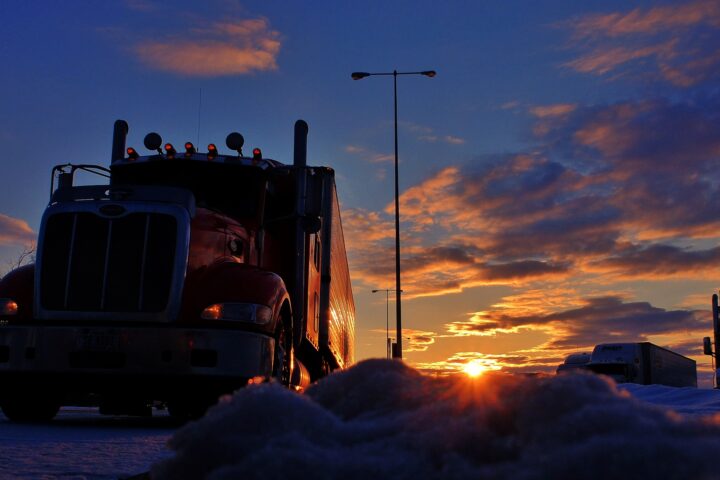Reducing costs is nothing new especially when it comes to the government schemes. So it was only time before the cost cutting reached the DVSA. It introduced two initiatives, the Remote Enforcement Office and the Earned Recognition Scheme, aimed at performing fewer road-side checks on compliant fleets.
How is DVSA compliance changing?
In relation to Earned Recognition, the DVSA is currently working with a handful of industry companies who have been asked to trial the initiative. The pilot scheme could transform how businesses approach fleet compliance. It provides commercial vehicle fleets who can prove good compliance track records with the possibility of reducing the number of inspections they undergo plus a range of other benefits. The scheme is a quite a significant development and could have a genuine operational impact on the way fleets handle compliance.
Fundamentally, the thinking is that the DVSA will move its inspection resources away from fleets that it knows to have a strong safety culture and, instead, target those that represent a likely safety risk much more closely.
How do I take part in Earned Recognition?
To take part in Earned Recognition, fleets will have to make key information available to the DVSA and third party auditors electronically, covering areas such as vehicle roadworthiness, other work undertaken by drivers and driver hours.
To achieve this, the DVSA needed more efficient ways of auditing compliance and the result is the Remote Enforcement Office. Under the initiative, the DVSA can contact a fleet operator to request remote access to compliance records such as service inspection and tachograph records.
Roadside checks are time consuming and expensive for both the DVSA and operators. Currently in a trial phase, the Earned Recognition Scheme is an attempt by the DVSA to give fleets an opportunity to pro-actively demonstrate their compliance.
It will reward operators with fewer compliance checks in return for access to their compliance data, which will help the agency focus its resources on the seriously and serially non-compliant.
What kind of access does the DVSA need?
It is not yet clear what “access” means – but the current assumption is that this will be to give the DVSA remote access to online maintenance records, telematics data etc. Although the scheme is voluntary, if this is the case, then operators may find themselves faced with two options:
- Scan and upload all your paperwork into a central DVSA portal
- Adopt an online system which digitally creates, stores and manages all your compliance paperwork and simply give log-in access to the DVSA as required.
Will this new form of DVSA compliance monitoring work?
Will it cut down costs? Most importantly, will it stop those who operate in an unsafe manner?
It will certainly be interesting to see and hear what people think about this. In the meantime, if you need advice, assistance or help with any road traffic offences, transport issues or traffic commissioner inquiries then #getlawsavvy and give us a call.
+44 (0)1224 900025
Here to help those that need it. #BeProactive and #StaySafe
SUBSCRIBE to the Ferguson Legal newsletter to keep your business the right side of the law.




